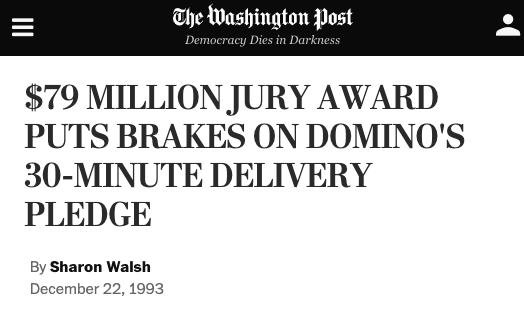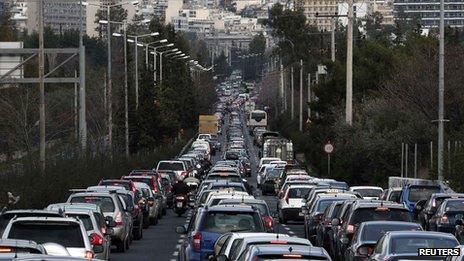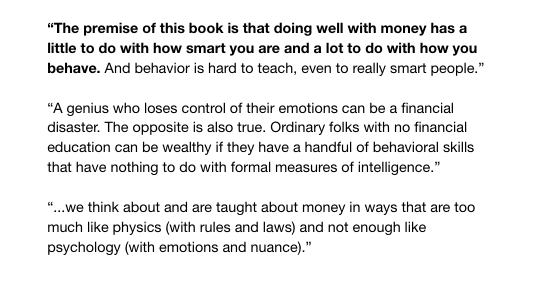
Charlie Munger said "show me the incentive and I will show you the outcome."
A great way to learn this lessons: look at poorly-designed rules (AKA bad incentives) that had unintended consequences.
Here are 10 examples 🧵
A great way to learn this lessons: look at poorly-designed rules (AKA bad incentives) that had unintended consequences.
Here are 10 examples 🧵
For years, Domino's Pizza had this famous promotion: delivery within 30 mins OR the pizza was FREE.
Delivery drivers often sped to make the deadline and caused a number of accidents.
One crash victim sued Domino's and was awarded $79m. The chain shut the promotion down.
Delivery drivers often sped to make the deadline and caused a number of accidents.
One crash victim sued Domino's and was awarded $79m. The chain shut the promotion down.

English law in Wales set the death penalty for stealing a sheep.
Beastiality was a lesser penalty, so Welshmen caught stealing sheep claimed they planned to make love to the animals.
As a result, Welshmen were given the nickname "sheep shaggers".
Beastiality was a lesser penalty, so Welshmen caught stealing sheep claimed they planned to make love to the animals.
As a result, Welshmen were given the nickname "sheep shaggers".

In Athens (late 80s), the government tried to limit pollution by having odd-numbered and even-numbered license plates drive on alternating days.
Result: rich folk bought a second (shittier + worse emission) car as a backup. Streets stayed clogged, pollution got worse.
Result: rich folk bought a second (shittier + worse emission) car as a backup. Streets stayed clogged, pollution got worse.

Employees at one company were getting a bit liberal with lunch time, so their boss made everyone text when they started and ended lunch.
One dude started texting every detail: start time, order, price, address, end time, random emotions.
They cancelled the policy.
One dude started texting every detail: start time, order, price, address, end time, random emotions.
They cancelled the policy.

Alcohol bans at college football games led to increased intoxication problems because fans were getting really really drunk before entering the stadium. 

In Alberta, strip club patrons must keep a 2m buffer from dancers. The only currency that travel that far are metal $1/$2 coins ("loonie","two-onie"):
"The goal was to protect the safety & dignity of dancers but they were reduced to fleshy coin targets”
"The goal was to protect the safety & dignity of dancers but they were reduced to fleshy coin targets”

In the Soviet Union, steel producers were rewarded by the total weight output of the factory.
This led to production of oversized and un-usable strips of steels. End users had no choice but to take the impractical strip sizes and machine them down, thus wasting steel.
This led to production of oversized and un-usable strips of steels. End users had no choice but to take the impractical strip sizes and machine them down, thus wasting steel.

Windsor, Ontario switched to LED lights for traffic signals to save on electricity.
LED's burn cool so -- in the winter -- snow and ice don't melt off like it does on electric lights.
This led to car accidents and additional expenses for work crews to clean the lights.
LED's burn cool so -- in the winter -- snow and ice don't melt off like it does on electric lights.
This led to car accidents and additional expenses for work crews to clean the lights.

Classic example from "Freakanomics":
An after-school centre started fining parents that picked their kids up too late.
More parents started picking their kids up late as the fine was now seen as a "fee for services".
An after-school centre started fining parents that picked their kids up too late.
More parents started picking their kids up late as the fine was now seen as a "fee for services".

The entire genre of "rules that had unintended consequences" is known as "The Cobra Effect".
Under colonial rule, villagers in India were paid a bounty to capture cobras. People started breeding cobras so they could kill them and collect rewards.
Under colonial rule, villagers in India were paid a bounty to capture cobras. People started breeding cobras so they could kill them and collect rewards.

I write threads breaking down tech and business 1-2x a week.
Follow @TrungTPhan to catch them in your feed.
Here's another one you might like:
Follow @TrungTPhan to catch them in your feed.
Here's another one you might like:
https://twitter.com/trungtphan/status/1439246021536616456
Also check out my Saturday newsletter for other interesting content right to your inbox: trungphan.substack.com
Sources
Reddit: reddit.com/r/AskReddit/co…
CBC: cbc.ca/amp/1.3465301
Smithsonian: smithsonianmag.com/history/eastla…
Washington Post/Dominos: washingtonpost.com/archive/politi…
Reddit: reddit.com/r/AskReddit/co…
CBC: cbc.ca/amp/1.3465301
Smithsonian: smithsonianmag.com/history/eastla…
Washington Post/Dominos: washingtonpost.com/archive/politi…

One more: After Titanic accident (1912), the US government made a law requiring that boats have lifeboats for 75% of passengers.
Legislators warned that Great Lakes vessels couldn't handle the extra weight.
One boat (SS Eastland) flipped in Chicago River, killing 850 people.
Legislators warned that Great Lakes vessels couldn't handle the extra weight.
One boat (SS Eastland) flipped in Chicago River, killing 850 people.

• • •
Missing some Tweet in this thread? You can try to
force a refresh















